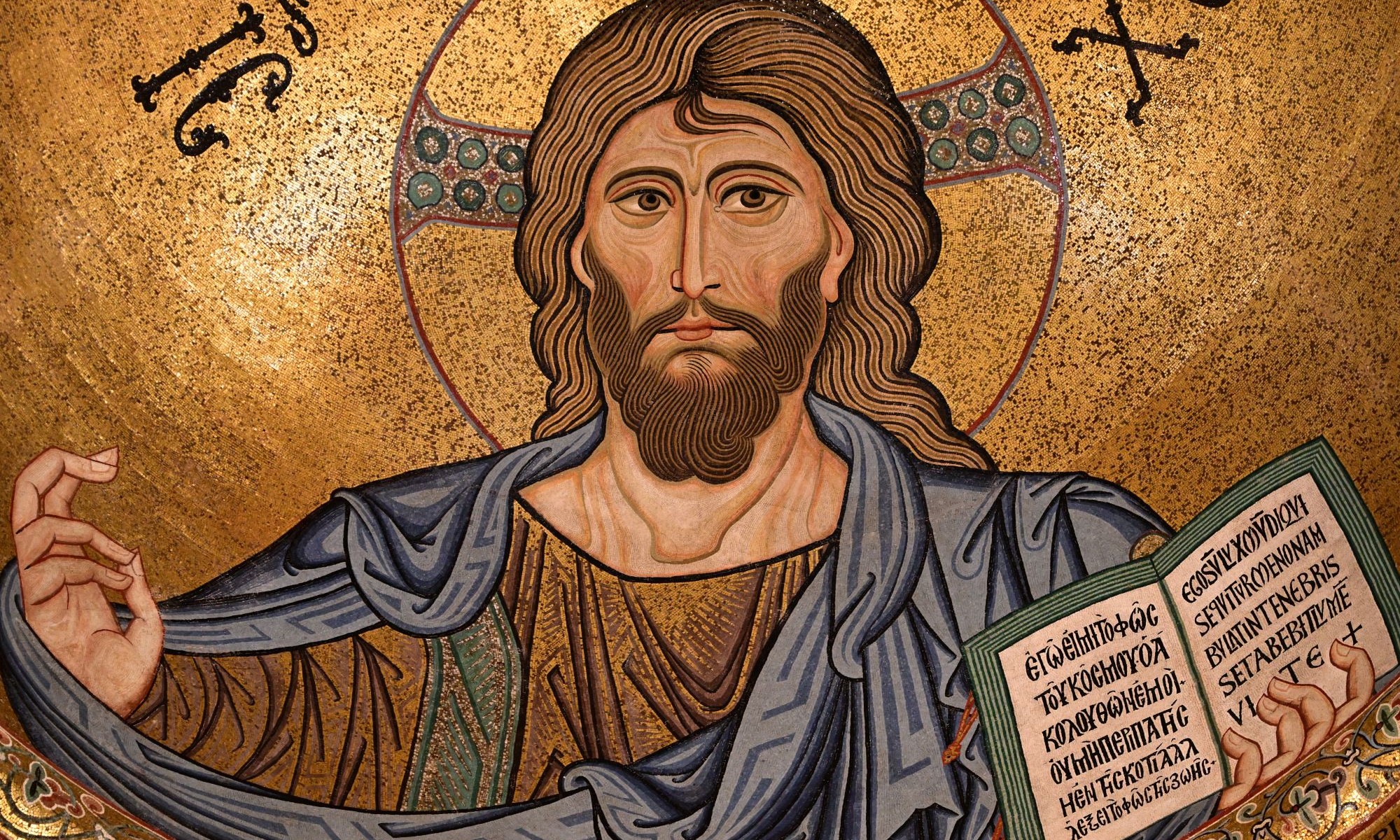First Sunday of Lent, 2022. Year C.
Readings: Romans 10:8b-13 & Luke 4:1-13.
May these words of my mouth and the meditation of our hearts be pleasing in your sight, O Lord, my Rock and my Redeemer.
The incarnation is a uniquely Christian religious concept. Plenty of other religions have or had stories of men becoming gods, or gods assuming the shape of men, but I know of no others that have, as one of their central stories, God becoming man. Jesus was the word made flesh. Not pretending to be a man, or seeming to be a man, but actually a man. And a man who allowed himself to be beaten and whipped and put to death. In Jesus, God experiences humanity as we experience it.
Despite this, scripture and tradition are clear on one thing though – Jesus was without sin. Jesus is man as God originally intended man to be; the second Adam. The book of Genesis shows us the solution to the inconsistent triad – an all-loving God was all-powerful in creating a world without suffering, but we chose to use our divine gift of free-will to create pain and suffering in the world. God’s solution to this is not to remove free-will. It is to give us the law, the prophets, and finally his own Son to lead us on the path of redemption and salvation. He first attempted to make us sinless by making us innocent of sin, but once we had fallen, the only way back is for us to confront our sinfulness.
Jesus may be without sin, but that does not mean that he is without temptation. Adam was tempted, and temptation is part of our pre-Fall humanity, so Jesus shares that temptation with us in his full and complete humanity. In Matthew’s gospel, we read of the sort of temptations that Jesus was prey to. The bible personifies this temptation both here and in Genesis as the work of the devil, elsewhere called the Satan – the adversary or the accuser. But this is not some external agency working on us – our temptations come from within us.
Jesus feels three temptations.
The first is hunger and thirst, understandable having spend forty days and nights fasting. His temptation is to use his power to turn the stones into bread to satisfy his own needs. His response is that physical nourishment is worthless without spiritual nourishment as well. Fasting can be a good discipline for our minds and bodies, although we should also reflect on the luxury that we have to chose to fast, compared to those who have no food. Today we are thinking of those in the Ukraine denied access to food and water; but for tomorrow we will need to think about the dire impact this war will have on food supplies for the whole world.
The second is to tempt God – to push him and see how he will react. Surely God will save us, we might cry ourselves. God will save us, but our ways are not his ways. Jesus tells his adversary not to put God to the test – a double edged message. In our inhumanity to each other, we are constantly putting God to the test, defiling that which He made in His own image. God forgives us in his infinite mercy and grace, but actions have consequences, even if their sinfulness is forgiven.
Thirdly he is tempted by worldly power. We can see what the results of that temptation are, right now, in the destruction of the Ukraine and the impoverishment of Russia. One man, surrendering to a temptation like that, is leading millions of people into starvation, ruin and death. The ancient world had no shortage of similar tyrants. Jesus refuses take on such worldly power at the price of becoming a slave to such worldly power.
In each case, Jesus is offered an easy solution to the world’s problems. He can solve world hunger with the wave of his hand. He can rule the world as a benevolent tyrant. But complex problems are not solved by easy solutions, and human sinfulness and the consequent fallenness of creation is a complex problem.
We are faced with an escalating war where we have no idea what the outcome or consequences will be. There are plenty of people offering solutions, or telling us what should have been done different to have stopped it happening, but the reality is that this is a complex problem, created at its heart by human greed, pride and ambition. In this Lenten season let us examine ourselves, and try to hold ourselves to account and resist such urges in ourselves, trusting not in ourselves, but in God.
Amen
